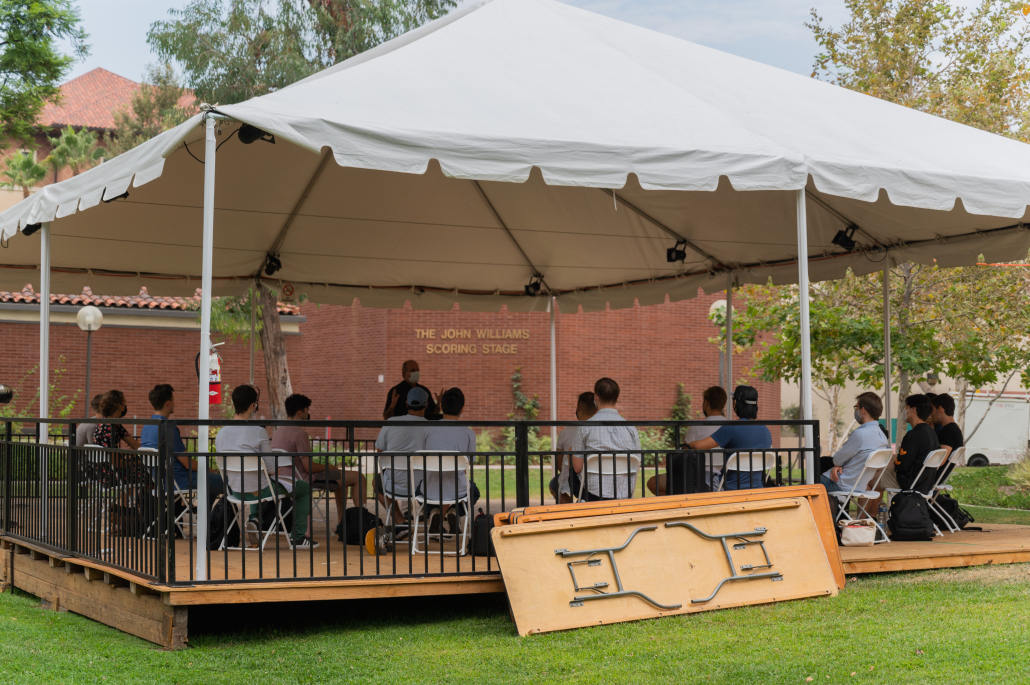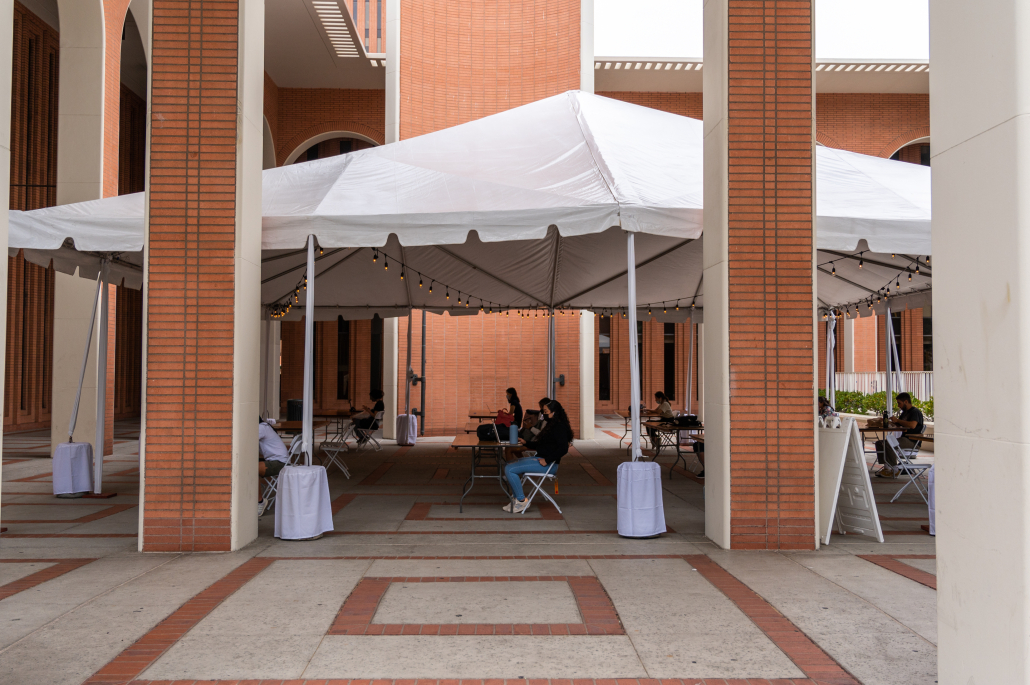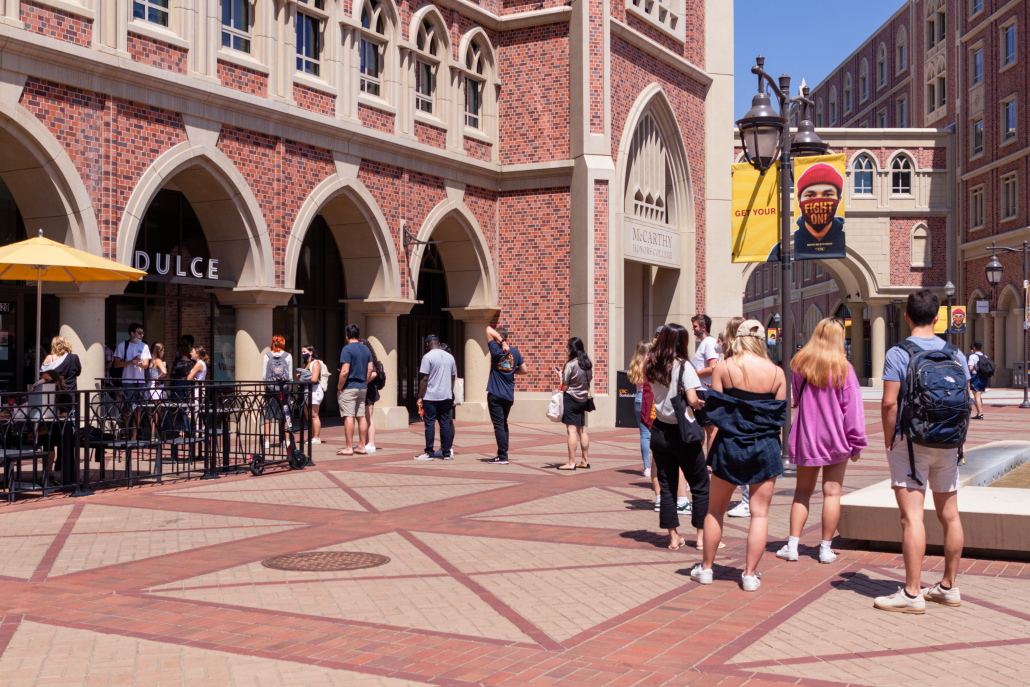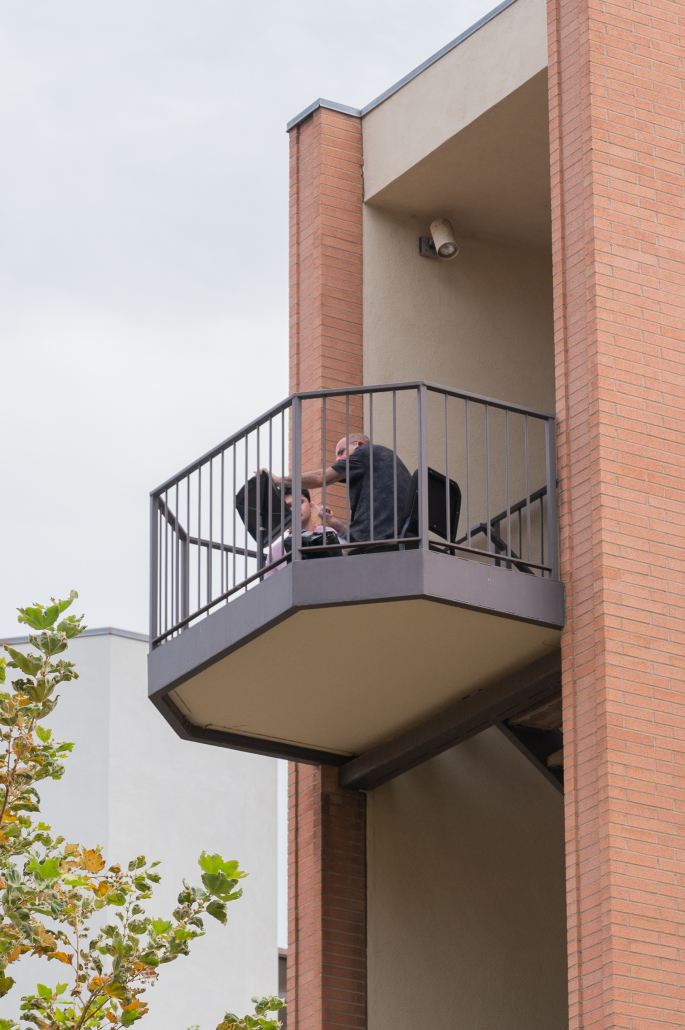Officials urge caution amid flu season

While USC Student Health remains optimistic about current coronavirus case rates on campus, University health officials remain reluctant to ease mitigation efforts amid the upcoming flu season, Chief Health Officer Dr. Sarah Van Orman said at a Student Health media briefing Thursday.
Of the 34,067 tests administered between Sept. 12 and Sept. 18, 59 students and four employees tested positive for the coronavirus. The updated .18% positivity rate reflects the lowest positivity trend among students since the beginning of the fall semester, and the .30% faculty positivity is slightly lower than the .38% reported last week.
According to the Centers for Disease Control and Prevention, California currently has the lowest coronavirus case rate in the United States. The positivity rate in California has declined to 3.1%, a decrease of 4.1 percentage points from its peak of 7.2% on Aug. 1. Los Angeles County positivity trends stand even lower, with a seven-day average of 1.44%.
Vaccination rates continue to increase statewide and in L.A. County — 77.8% and 68.0% of residents are fully vaccinated, respectively. However, USC continues to outperform local, state and federal vaccine rates with 95% of all students, faculty and staff fully vaccinated against the coronavirus.
“I feel really positive about where we are as a campus and a community … If we look at where California is right now, it really is a triumph of public health,” Van Orman said. “I think we can really account for California’s success in what California did this summer in being the most proactive state in the country in responding to the delta surge.”
Van Orman said decreasing prevalence in the community and heightened mitigation efforts currently implemented around campus are factors behind the declining transmission rates within the USC community.
“The most important mitigation step that is emerging … the ability for people to self-isolate, get tested and do contract tracing when they have symptoms,” Van Orman said. “[It] remains the most important strategy we have [against the pandemic].”
Van Orman said she is hopeful USC will avoid another coronavirus surge during Fall 2021 but expressed concern about “risk periods,” such as the upcoming fall break where many students will travel and engage in high-risk settings outside of the campus community.
“[USC] has such high vaccine rates on campus, I’m hopeful that we don’t see a secondary surge,” Van Orman said. “If we can get through that midterm break period without a surge or a moderate surge, I feel confident about where we will be for the rest of the semester.”
On Wednesday, the Food and Drug Administration permitted emergency use authorization of Pfizer booster shots for high-risk individuals and anyone over 65 years old. A booster shot means receiving a third dose of the coronavirus vaccine. At this time, only students and staff who are immunocompromised can receive a third coronavirus vaccine dose from the Engemann Student Health Center.
“I think the data is pretty strong that we probably won’t need booster shots yet,” Van Orman said. “That doesn’t mean we don’t need them ever — so I think it’s right to let the science and data guide us — but the fact remains that the [vaccines] remain very protective.”
Despite reduced case counts and positivity rates on campus and within the broader L.A. community, Student Health remains hesitant to relax coronavirus-related measures, including the weekly surveillance testing requirement and the “no-guest policy” — a coronavirus policy that restricts students from entering on-campus residential facilities that they don’t personally live in.
“We’re continuing to evaluate how long we want to do the surveillance testing — we’ll keep watching that — I know students right now feel really positive about it,” Van Orman said. “I think the [no-guest policy] is something we could continue to evaluate -— we definitely want to ease up, [but] at the same time we just need to be cautious about protecting where people live.”
In addition to surveillance testing, Van Orman said Student Health is monitoring the spread of the coronavirus through wastewater samples.
“We’re doing wastewater detection in our dorms. We’re really excited — many of our dorms have had zero detections, which is terrific, and [the results] correlate with our surveillance testing,” Van Orman said. “We should be able to announce some of our wastewater testing results next week.”
Van Orman said the campus community should expect an announcement Friday detailing flu vaccination mandates for the student body. While Van Orman said she made a formal recommendation in favor of a flu shot requirement, the Presidential Leadership Team will ultimately make the final decision on campus-wide vaccination requirements.
In a statement to the Daily Trojan, the University said it won’t reveal its final decision on a flu shot mandate until Friday.





